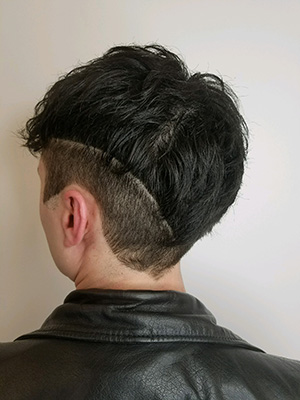Leah Pistorius
January 17, 2019
Os Keyes, a second-year PhD student in the Department of Human Centered Design & Engineering, has received an inaugural Microsoft Research Ada Lovelace Fellowship award to support their research on facial recognition software.
 Aiming to diversify perspectives in computing, the Ada Lovelace Fellowship provides tuition and fee support for three years, along with an annual stipend and an invitation to Microsoft’s PhD summit. Of the five awardees in 2019, Keyes was (along with Divine Maloney) one of only two researchers in HCI to receive this award.
Aiming to diversify perspectives in computing, the Ada Lovelace Fellowship provides tuition and fee support for three years, along with an annual stipend and an invitation to Microsoft’s PhD summit. Of the five awardees in 2019, Keyes was (along with Divine Maloney) one of only two researchers in HCI to receive this award.
This fellowship will support Keyes’ work in auditing facial recognition systems for bias, along the axes of gender, disability, and race, with a focus on trans-inclusive methodologies. More broadly, they aim to explore how AI systems reinscribe normative views of gender, and create tensions for those at the intersections of classes these technologies purport to help. Collaborating with Keyes is Cynthia Bennett, whose research examines how accessible practices can foster equal participation by, and recognition of, people with disabilities in design fields. Bennett received Microsoft’s Dissertation Grant to support her research in the 2018-2019 year.
Keyes presented part of this work on February 13, 2019, at Seattle University, as part of the Trans* Visions Invited Lecture Series.
Read more about Keyes' work and the four other Ada Lovelace fellows on the Microsoft Research website.
David McDonald, Professor and Chair of the Department of Human Centered Design & Engineering, commended Keyes on this honor, saying “This is wonderful recognition of the important work that Os Keyes is doing. Their work is a great example of the type of research that HCDE seeks to foster—strong technically and deep intellectually—with important social impacts. This is the essence of that it means to engage in foundational human centered research.”